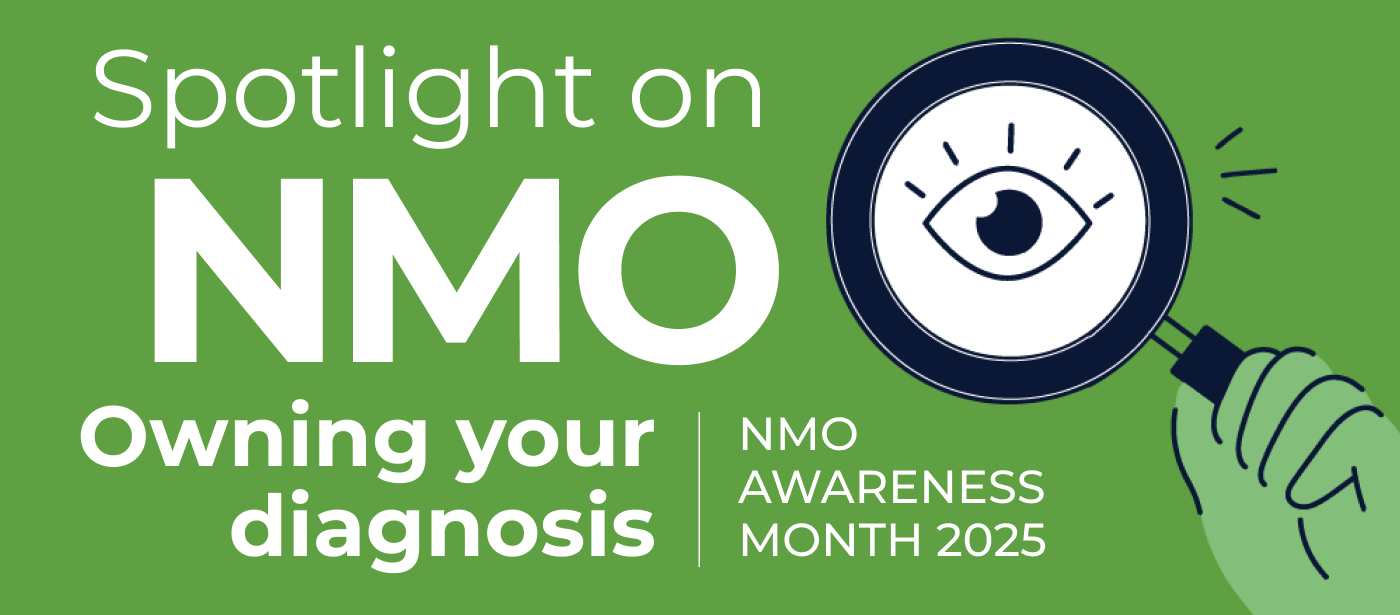Switching doctors with NMOSD: When and how to do it
Written by |

This is part of a series about neuromyelitis optica for NMO Awareness Month. Go here to read more.
A doctor’s expertise and familiarity with a challenging condition like neuromyelitis optica spectrum disorder (NMOSD) is important, but so is having a healthcare provider who listens, understands your needs, and aligns with your goals for treating NMOSD symptoms.
Switching doctors or getting a second opinion can sometimes prompt a different approach to your treatment plan, provide better support, and positively affect your long-term health. Still, it’s not always easy to acknowledge that your doctor-patient relationship is in need of a change.
Assessing your doctor-patient relationship
If you have concerns about your current NMOSD care and how well it supports your health goals, it might be time to consider a new healthcare provider.
Disagreements about care strategies are not automatically a red flag. So, before you decide to find a new practitioner, check to see if their suggested care plan makes sense as the next step for your situation.
Some ways to evaluate that include:
- talking to other patients
- getting a second opinion from another neurologist
- reaching out to patient support groups and their medical experts for guidance.
Still, not being aligned with your doctor can be a sign of a bigger problem. Some questions to ask yourself:
- Does my doctor explain my treatment plan clearly?
- Am I comfortable openly discussing my concerns, such as pain or other NMOSD symptoms?
- Does my doctor value my opinion and make me feel like a partner in my NMOSD care?
- Does my doctor have a proactive approach to managing my condition?
- Does my doctor downplay the seriousness of NMOSD attacks, such as optic neuritis or worsening paralysis?
- Do I find myself questioning the care strategy, such as starting or stopping a particular NMOSD treatment?
- Does my doctor update me about the latest treatments and clinical trials?
- Does my doctor research, attend conferences, and talk with other specialists about new and upcoming treatments for NMOSD?
It can be intimidating to challenge your doctor, especially when they’re a specialist, when acting quickly to address symptoms or flare-ups is critical, or if you’re not sure how long it will take to find another healthcare provider who understands NMOSD. Generally, it’s not recommended you leave your current doctor until you’ve been accepted by a new specialist.
Overcoming your fear is an important step in advocating for yourself. Recognize that your comfort with your care matters, and finding the best possible treatment experience is worth the effort.
Next steps
When you’re ready to explore switching doctors or get a second opinion, first identify what in your NMOSD healthcare is lacking or in need of improvement.
Next, research potential specialists. Check how experienced they are in treating NMOSD, read online reviews by other patients, and request referrals. Their location may also be a factor.
If you feel comfortable, ask your current doctor for recommendations. Some doctors are open to referring you to another expert or your getting a second opinion, if you explain your reasons.
Organizations that may be able to offer recommendations for specialists in NMOSD include:
- National Multiple Sclerosis Society
- Siegel Rare Neuroimmune Association
- The Sumaira Foundation
- Guthy-Jackson Charitable Foundation
- The Mog Project
- American Neurological Association
- National Organization of Rare Disorders.
After meeting a new specialist, consider if they seem a better fit for your needs. Think about your interactions. Did the healthcare provider:
- seem interested in you as a person
- listen to what you had to say
- take the time to explain themselves and their treatment approach?
Also, ask about their communication practices, including:
- How do you get in touch with them?
- What is the usual wait time for a response to an email or call?
- How long does it take to get a prescription refill?
- Is there a nurse practitioner who quickly handles refills or other requests?
Finally, check their availability. Sometimes it can be many months or even a year until you can get an appointment.
Depending on how the visit went, you may decide to stay with your current doctor, make the change, or keep looking.
Note: Neuromyelitis News is strictly a news and information website about the disease. It does not provide medical advice, diagnosis, or treatment. This content is not intended to be a substitute for professional medical advice, diagnosis, or treatment. Always seek the advice of your physician or other qualified health providers with any questions you may have regarding a medical condition. Never disregard professional medical advice or delay in seeking it because of something you have read on this website.





